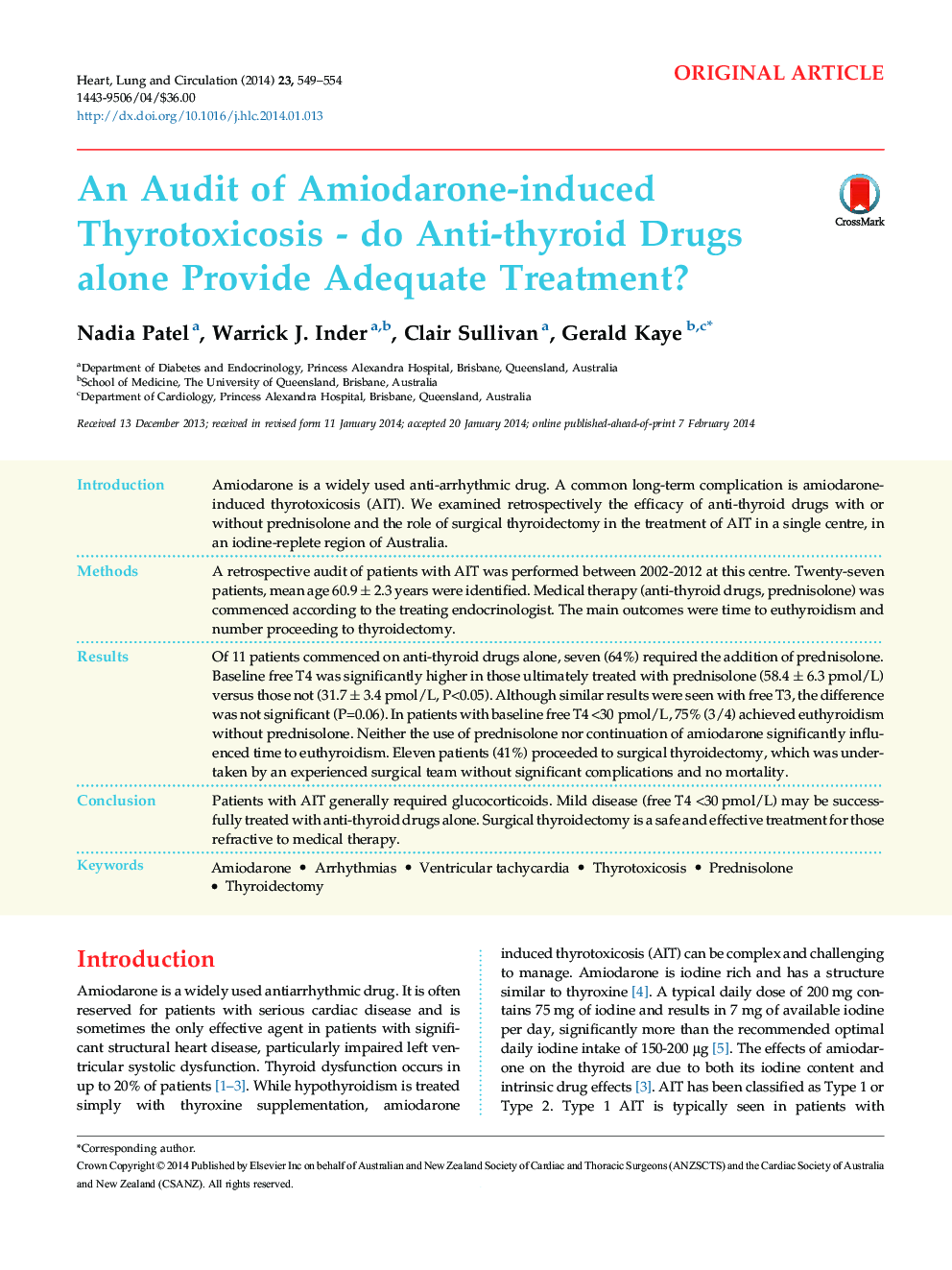| Article ID | Journal | Published Year | Pages | File Type |
|---|---|---|---|---|
| 2918043 | Heart, Lung and Circulation | 2014 | 6 Pages |
IntroductionAmiodarone is a widely used anti-arrhythmic drug. A common long-term complication is amiodarone-induced thyrotoxicosis (AIT). We examined retrospectively the efficacy of anti-thyroid drugs with or without prednisolone and the role of surgical thyroidectomy in the treatment of AIT in a single centre, in an iodine-replete region of Australia.MethodsA retrospective audit of patients with AIT was performed between 2002-2012 at this centre. Twenty-seven patients, mean age 60.9 ± 2.3 years were identified. Medical therapy (anti-thyroid drugs, prednisolone) was commenced according to the treating endocrinologist. The main outcomes were time to euthyroidism and number proceeding to thyroidectomy.ResultsOf 11 patients commenced on anti-thyroid drugs alone, seven (64%) required the addition of prednisolone. Baseline free T4 was significantly higher in those ultimately treated with prednisolone (58.4 ± 6.3 pmol/L) versus those not (31.7 ± 3.4 pmol/L, P<0.05). Although similar results were seen with free T3, the difference was not significant (P=0.06). In patients with baseline free T4 <30 pmol/L, 75% (3/4) achieved euthyroidism without prednisolone. Neither the use of prednisolone nor continuation of amiodarone significantly influenced time to euthyroidism. Eleven patients (41%) proceeded to surgical thyroidectomy, which was undertaken by an experienced surgical team without significant complications and no mortality.ConclusionPatients with AIT generally required glucocorticoids. Mild disease (free T4 <30 pmol/L) may be successfully treated with anti-thyroid drugs alone. Surgical thyroidectomy is a safe and effective treatment for those refractive to medical therapy.
